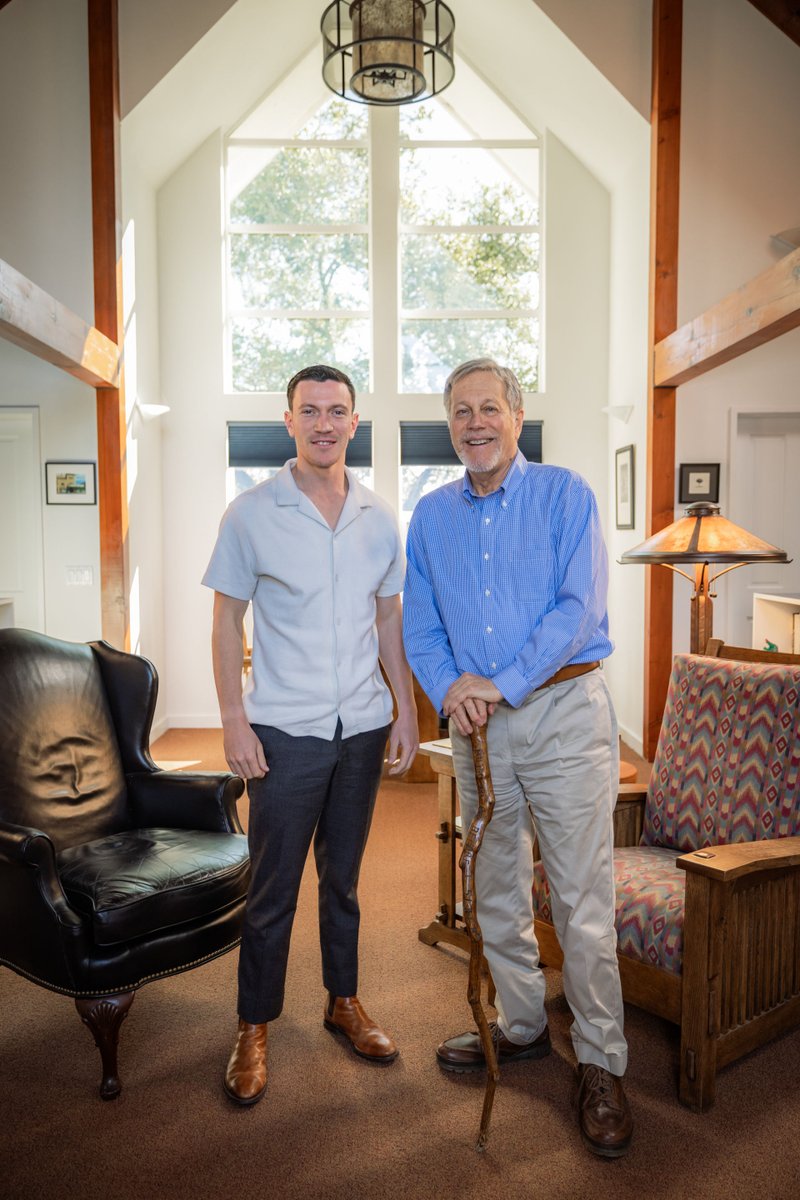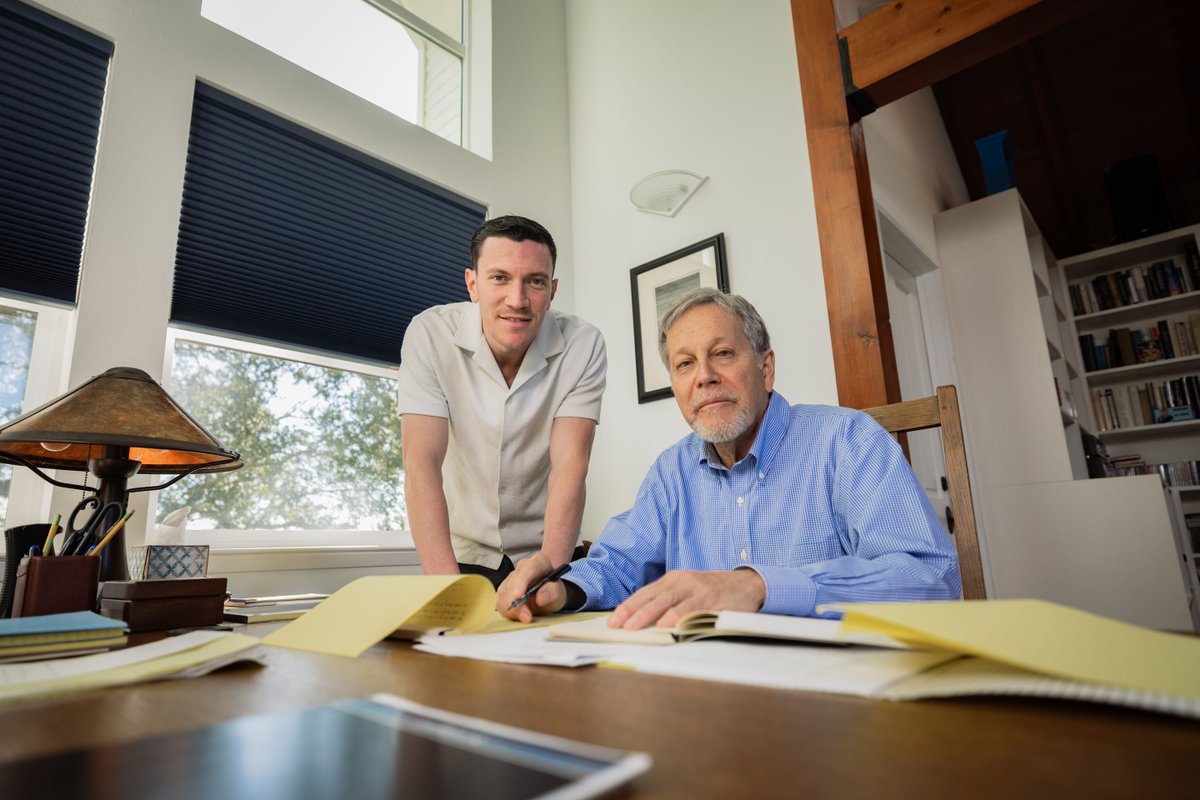21 ideas from 2021:
1. The Mind Creates Reality: The American Psychological Association once invited William James to give a talk on the first 50 years of psychology research.
He simply said: “People by and large become what they think of themselves.”
Then, he left.
He simply said: “People by and large become what they think of themselves.”
Then, he left.
2. Make One Person Responsible: If you want to get something done, it’s tempting to put a huge number of people in charge. But often, when too many people are in charge, nobody accepts responsibility.
This saying is illustrative: “A dog with two owners dies of hunger.”
This saying is illustrative: “A dog with two owners dies of hunger.”
3. Kanye West, on Genius: "If you guys want these crazy ideas, these crazy stages, this crazy music, this crazy way of thinking, there’s a chance it might come from a crazy person.”
4. The Knife Theory of Hiring: When you first start a company, you need Swiss Army Knife people who can do a little bit of everything. Once your company gets big, you need a bunch of kitchen knife people who do one thing very, very well.
5. Sayre’s Law: In a dispute, the level of emotions are inversely related to what’s at stake. That’s why unimportant events can inspire such passionate arguments. In parts of academia, they say: “The battles are so fierce because the problems are so trivial.”
6. Braess’ Paradox: Adding capacity to a system can counterintuitively slow things down. Highways are the classic example. For years, road designers have observed that adding more roads to a network can actually increase congestion and slow the flow of traffic.
7. Current vs. The Wind: Novice sailors focus on the wind. Experienced ones study the currents. Since the winds change every day, the knowledge is ephemeral. But currents are persistent and predictable, even if they’re hard to see. Focus on the currents in life.
(h/t Seth Godin)
(h/t Seth Godin)
8. Akrasia: In theory, we know how to behave. But in practice, we don’t always do it. The Ancient Greeks called this phenomenon “akrasia,” which translates to “weakness of will.” It describes our tragic proclivity to act against our best interests, even when we know what to do.
9. Paradox of Consensus: Under ancient Jewish law, if a suspect was unanimously found guilty, they were deemed innocent. Total agreement signaled a systematic flaw in the judicial process. Often, when everybody is thinking alike, nobody is thinking at all.
https://twitter.com/david_perell/status/1378943649845678082?s=20
10. The Paradox of Weirdness: The weird parts of ourselves are actually the thing that’s normal. People are actually weird. It’s how we’re born. What’s weird is the way social conditioning makes us seem more similar than we really are.
(h/t @tylercowen)
(h/t @tylercowen)
11. Make Uphill Decisions: If you’re split between two decisions and don’t know which one to choose, default to the one that’s more difficult in the short-term.
(h/t @naval)
(h/t @naval)
12. Nullius in Verba: This is Royal Society’s old motto. It translates to “take no one’s word for it.” Be curious. Figure things out for yourself. Move through the world with a posture of productive skepticism and when it comes to truth, do your own investigations.
13. Otium: The Latin word for leisure. But not the lazy kind of leisure where you sit around and do nothing. It’s the Ancient Roman kind where you play sports, contemplate life, and consume great art. This is how I aspire to spend my weekends.
14. Luxury Beliefs: People have always signaled status by buying expensive things. But now they do it by holding certain beliefs, which confer status on upper class people while inflicting costs on lower class ones.
(h/t @RobHenderson)
(h/t @RobHenderson)
15. Pre-Headline vs. Post-Headline People: Pre-headline people know about things before they make it into the news. Post-headline people only know about things after they’re printed and become well-known. Pre-headline people have the edge in life.
(h/t @balajis)
(h/t @balajis)
16. Robustness Principle: A design guideline for software developers that applies to many things in life: “Be conservative in what you do, but liberal in what you accept from others.”
17. Serving vs. Served: Self-sacrificial service is the great paradox of life. The more you give, with no expectation of reciprocity, the happier you will be. In a world of utility-maximizing selfishness, this is counterintuitive and counter cultural.
(H/t @BrentBeshore)
(H/t @BrentBeshore)
18. Yuck and Yawn: If you want to start a profitable business, look for opportunities that are smelly (like trash collection) or ones that are boring (like niche materials). Avoid sexy industries like the ones prestige-thirsty MBA students tend to pursue.
(H/t @AumEnergy)
(H/t @AumEnergy)
19. The Story of Damocles: A man once got to be king for a day and sit on the king’s luxurious throne. From afar, the throne looked peaceful. But to his surprise, a sword hung above it. Immediately, Damocles learned that with great power comes great fear, anxiety, and danger.
20. Planck’s Principle: Scientific knowledge doesn’t change because scientists change their mind. Rather, it changes as old scientists die, new ones are born, and a new generation of scientists gains influence.
21. The Stupid Test: Peter Thiel once said: “As an investor, you want to find things that are so stupid that people are embarrassed to invest in them.“ Often, the best opportunities are the simplest. Unfortunately, people miss them because they think good ideas must be complex.
If you liked this thread, you’ll also like my weekly newsletter where I share ideas like this every week.
Sign up below.
perell.com/newsletter/
Sign up below.
perell.com/newsletter/
• • •
Missing some Tweet in this thread? You can try to
force a refresh











